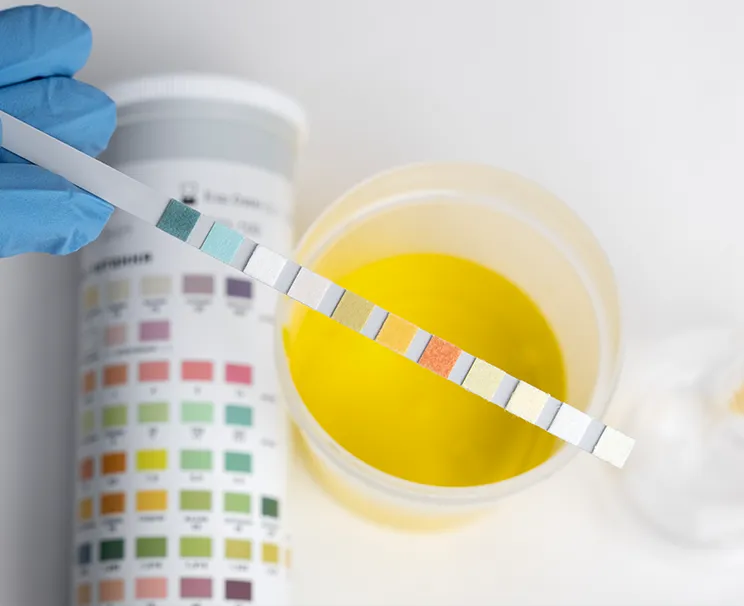Iron overload is a condition that results from excessive iron accumulation in the body, leading to organ damage. It can occur due to genetic factors, frequent blood transfusions, or the uncontrolled use of iron supplements. The accumulation of iron in vital organs such as the liver, heart, and pancreas can lead to serious health issues over time. Particularly in individuals with the genetic disorder known as hemochromatosis, the body absorbs iron at higher than normal levels. This condition manifests through symptoms such as fatigue, joint pain, skin bronzing, and liver disorders.
Iron overload can also develop due to dietary habits. Excessive consumption of red meat, organ meats, and iron-fortified foods may lead to excessive iron accumulation in certain individuals. Additionally, excessive intake of vitamin C supplements can enhance iron absorption, exacerbating the condition. Excess iron contributes to oxidative stress, damaging cells and accelerating the aging process. Treatment options include regular blood donation to balance iron levels and consuming foods that reduce iron absorption. Blood tests measuring iron levels allow for early intervention in at-risk individuals.
Symptoms of Iron Overload
Iron overload is a condition resulting from excessive iron accumulation in the body. It may occur due to genetic factors, frequent blood transfusions, or uncontrolled iron supplementation.
The body is unable to excrete excess iron, leading to accumulation in organs such as the liver, heart, and pancreas, which may cause severe health problems. Particularly, elevated ferritin levels indicate excessive iron storage in the body. Early detection of this condition is crucial in preventing long-term organ damage.
Common symptoms of iron overload include:
-
- Chronic Fatigue: Excess iron disrupts energy metabolism, causing persistent fatigue and weakness.
- Joint and Abdominal Pain: Frequent joint pain, especially in the hands and wrists, is common. Additionally, excessive iron in the liver may cause abdominal pain and tenderness.
- Skin Discoloration: Iron deposition in the skin can cause a bronze or grayish pigmentation.
- Cardiac Issues: Excess iron can impair heart rhythm and muscle function, increasing the risk of heart disease.
- Diabetes and Hormonal Imbalances: Iron accumulation in the pancreas may disrupt insulin production, raising the risk of diabetes. Additionally, hormonal imbalances and decreased libido may occur.
If these symptoms are observed, medical consultation is essential, and blood tests measuring hemoglobin and ferritin levels should be performed. Treatment involves regular blood donations, dietary modifications, and avoiding iron-rich foods that promote iron accumulation.
Iron supplementation should not be taken without medical supervision, as unnecessary iron loading can have serious adverse health effects.

Causes of Iron Overload
Iron overload is a medical condition resulting from excessive iron storage beyond the body’s needs. Under normal circumstances, the body absorbs iron in a controlled manner and excretes any excess. However, in some cases, this regulatory mechanism is disrupted, leading to iron accumulation that may cause organ damage. Genetic predisposition, poor dietary habits, and factors enhancing iron absorption are among the leading causes.

Hereditary hemochromatosis is a genetic disorder that causes excessive iron absorption from food, leading to iron accumulation in organs over time. Additionally, individuals receiving frequent blood transfusions are at risk of iron overload, as each transfusion introduces extra iron into the body, potentially reaching toxic levels and damaging various organs.
Poor dietary habits also contribute to iron overload. Overconsumption of iron-rich foods or iron supplements without medical supervision may result in unnecessary iron storage. This risk is particularly high in individuals whose diets primarily consist of meat and organ meats.
The liver is the primary organ responsible for storing excess iron in the body. Liver diseases can impair the organ’s ability to regulate iron metabolism, leading to iron buildup. Alcohol consumption further exacerbates iron accumulation, negatively impacting liver health.
Additionally, misdiagnosed anemia treatments can be a cause of iron overload. Administering iron supplements to individuals without iron deficiency due to misdiagnosis may result in unnecessary iron accumulation and associated health complications. Therefore, regular monitoring of iron levels and avoiding unsupervised iron supplementation is essential.











